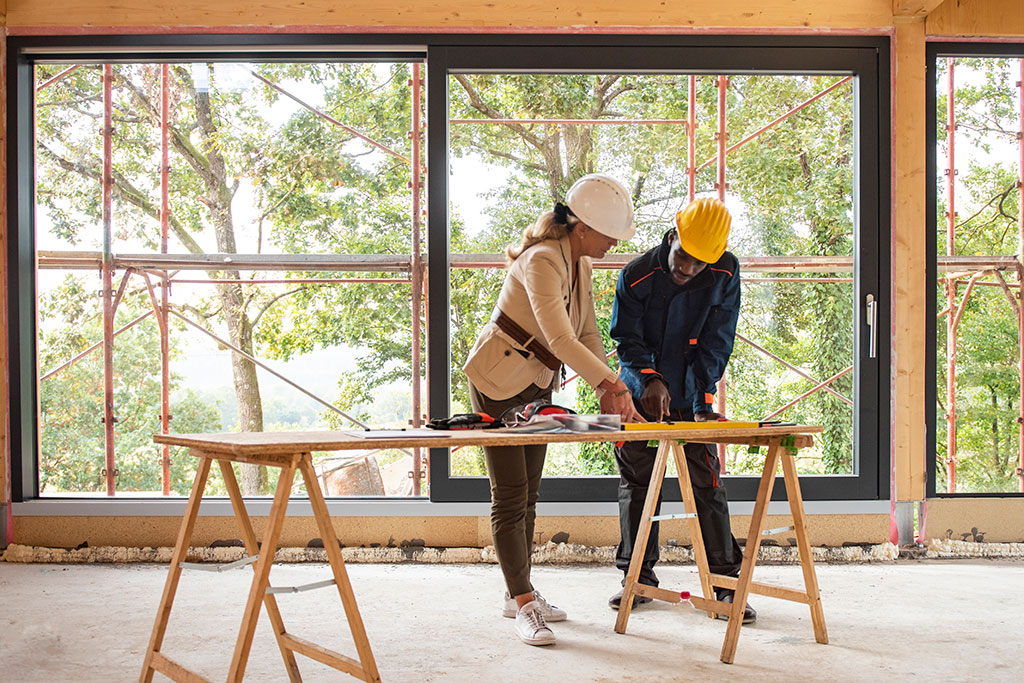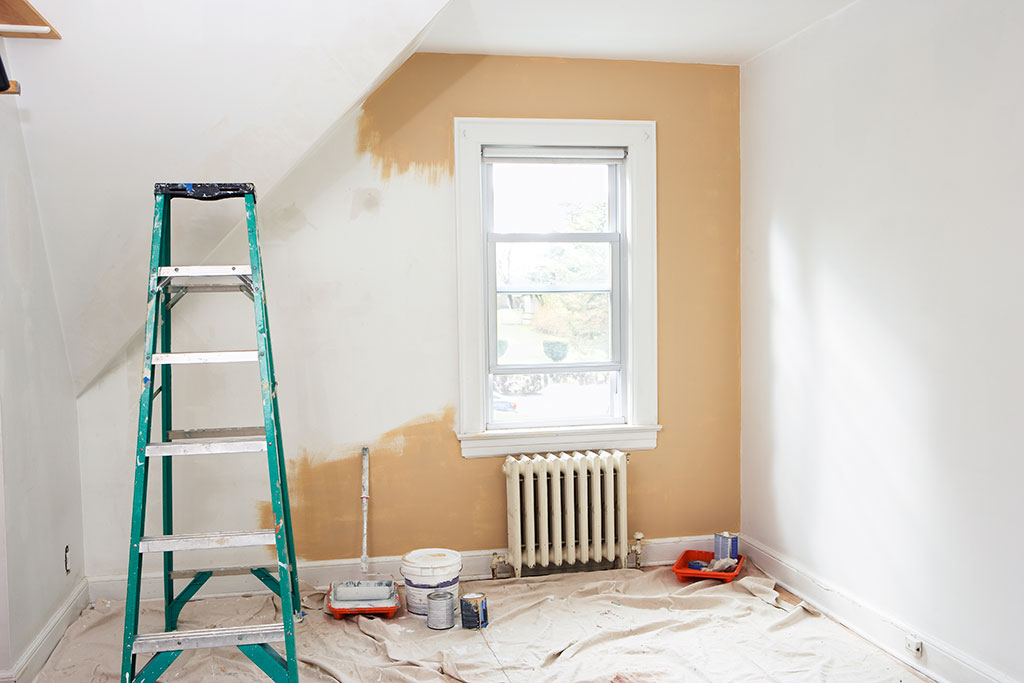A Home Renovation Game Plan
Renovating a home is never simple. There are dozens of decisions to make before the project even begins, and during construction it feels like something always ends up not going according to plan.
To make your home renovation a success, here are three key steps you should take during the preparation process.

Do your research
Starting about six months before your project begins (if not sooner), you’ll want to establish a clear vision for your home renovation—an idea of what changes you want to make and what you want the outcome to be. Are you redesigning your kitchen, adding on to the main bedroom, or replacing the flooring throughout the house? For whatever you do, knowing exactly what you want can help you find the contractor who will best work with you to bring your ideas to life.
If you have a broad vision and need help with the details, look for design inspiration on Pinterest or Instagram or in person at local home improvement stores. You can also search for blogs from homeowners who’ve done similar projects to get a look at their budget, timeline, and results. No two projects are ever the same, but by looking at similar ones, you can get a rough idea of the specifics of your renovation.
After you’ve come up with a plan for the project, you’ll want to start researching local contractors. Since you’ll be spending a good amount of money, it’s not enough to simply go with the first company or person you come across. You should find a few that look promising, then dig a little deeper by looking through their portfolio of work, perusing their before-and-after photos, and reading their client reviews. It’s also a good idea to have multiple contractors come out to your home to talk through the project and provide you with estimates. This vetting process will help ensure you find a contractor whose experience aligns with your own goals and whose estimate most closely matches your target budget.
Of course, many people forgo hiring a contractor to try to keep their budget low. In that case, you’d want to first research if your project is even feasible to do yourself. For example, it may be possible for you to lay new flooring in your house or paint your kitchen cabinets, but rewiring your home’s electrical work should be left to the professionals. One potential option is to make the process hybrid: complete parts of the project yourself, and then bring in a contractor for aspects you can’t do.

Communicate everything
Communication is key in any scenario, but when it comes to home renovations, it’s of the utmost importance. A contractor can’t see inside your head, so it’s up to you to tell them exactly what you want in the project and make sure they’re on the same page as you. Talk about layout, colors, and materials, and work together to select the different elements of the project. In doing so, your contractor can verify whether your ideas fit within the estimate they initially gave you. You may also want to discuss the project with other members of your household to ensure that everyone understands what will be happening.
Once you’ve decided on the details of the project, your chosen contractor should then be able to give you a timeline for it. However, it’s a well-known fact that home renovations often take longer than expected, so don’t be too surprised by any delays that may happen due to circumstances like supply-chain issues, weather, and unexpected problems found during construction.
The next step after establishing a timeline is working with your contractor to file the proper permits for the project. An experienced contractor should know the local zoning regulations and what permits need to be obtained, if any. It’s important to begin this process as early as possible, ideally before renovations begin, as any delay in permits or failures to adhere to regulations can create hiccups down the line and cause bigger issues for everyone involved.
Finally, in working with your contractor to nail down the details, you’ll want to make sure not only that they understand your expectations but also that you understand theirs. Get all the information you need about their work schedule and payment schedule and method, and be sure that you do your part to keep the process moving.

Prep your home
After you’ve planned everything with your contractor, you’ll need to prepare your home for the project. What prep is necessary will depend on what you’re having done, but it’s generally a good idea to clear out any space that you’re renovating. For example, if you’re getting new cabinets and countertops in your kitchen, you should remove everything from your drawers and cupboards since the entire kitchen will soon be torn out and replaced. You’ll also need to set up a temporary place to cook your meals or plan for no-cook dinners during the renovation.
On the other hand, if you’re doing a project across multiple rooms, you’ll want to move all furniture and fixtures to your garage or perhaps rent a mobile storage unit for everything you’re taking out of your home. Just ensure there’s nothing that will prevent your contractor from easily accessing the spaces they need to get to. And if you’re renovating the whole house, it may be a good idea to temporarily move out entirely while the work is being done.
Once the project begins, it’s important that you maintain communication with your contractor and follow their progress. This will keep everyone on the same page and mitigate any surprises that may arise throughout the process. Then, when everything is done, you can sit back and enjoy all the work that went into bringing your renovation vision to life.


















